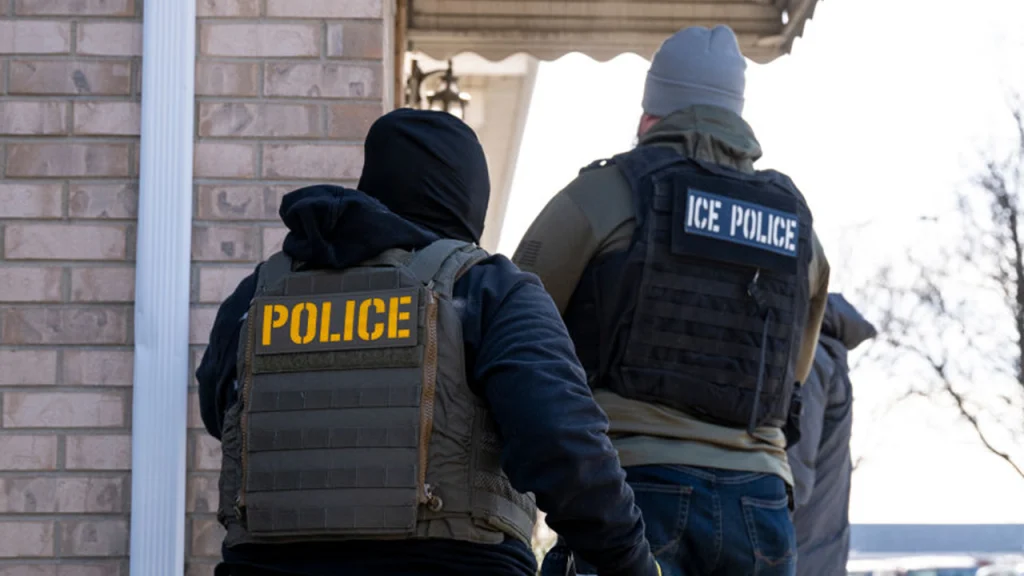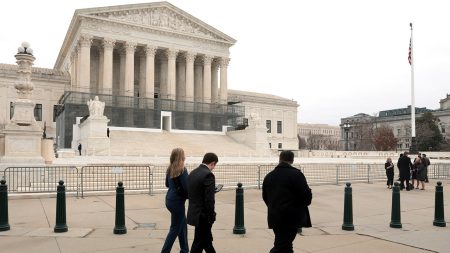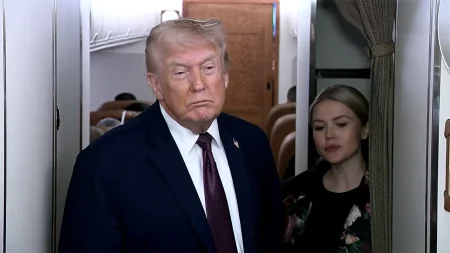Illinois Lawmakers Take Bold Step to Protect Immigrants at Courthouses
In a significant move that has stirred both support and controversy, Illinois legislators passed a bill on Friday that would prohibit federal immigration agents from making arrests near courthouses. The measure, which passed largely along party lines, now awaits Governor JB Pritzker’s signature, with his office indicating he supports the concept and will review the proposal once it officially reaches his desk. At its core, the legislation aims to ensure that courthouses remain accessible to everyone seeking justice, regardless of immigration status. The bill would allow migrants to sue if they believe their constitutional rights were violated during civil immigration arrests while attending court hearings or appearing as witnesses in legal proceedings. Senate President Don Harmon, a Democrat and key sponsor, acknowledged the legal challenges ahead but defended the bill’s constitutional foundation, stating, “It’s not just about the constitutionality of the law, which I think is sound, but it’s the reality that the courts are stacked against us.”
This legislative action follows a recent order by a Cook County judge blocking immigration arrests at county courthouses, citing concerns about fear and obstruction during court proceedings. Democratic State Senator Celina Villanueva, co-sponsoring the bill, emphasized that “No one should have to choose between seeking justice and risking their freedom.” Beyond courthouse protections, the measure extends safeguards by requiring hospitals, daycare centers, and higher education institutions to develop policies for handling immigration agents within their facilities. These provisions come at a particularly sensitive time, as the federal government recently reversed a Biden administration policy that had prohibited immigration arrests in locations such as hospitals, schools, and churches.
The federal government has pushed back against these local restrictions, asserting that “there are no legal sanctuaries where you can hide and avoid the consequences for breaking the law.” This tension reflects the broader national debate over immigration enforcement under the Trump administration, which has prioritized detaining suspected illegal immigrants as part of mass deportation policies. Reports have emerged of Immigration and Customs Enforcement (ICE) detaining individuals regardless of their citizenship or legal status, creating an atmosphere of fear that advocates say undermines the justice system’s functioning. The Illinois bill represents a direct response to these concerns, attempting to carve out spaces where immigrants can participate in legal proceedings without fear of detention.
Illinois is not alone in its efforts to shield immigrants from federal enforcement actions in sensitive locations. California has restricted immigration enforcement in courthouses since 2017, with Attorney General Rob Bonta explaining that while the state cannot control federal immigration action, it has “a responsibility to provide safe and secure access to court facilities to all residents regardless of immigration status.” In Connecticut, State Supreme Court Chief Justice Raheem Mullins implemented a policy last September banning warrantless arrests inside state courts and prohibiting the use of face coverings often worn by ICE officers. “Judges, staff, litigants, members of the public, they all must be able to conduct their business in our courthouses without fear of disruption,” Mullins stated, echoing the sentiments behind the Illinois legislation.
These state-level protections reflect growing concerns about the impact of aggressive immigration enforcement on fundamental civic institutions. When people fear entering a courthouse might result in deportation, they become less likely to report crimes, testify in cases, or seek legal remedies for issues ranging from domestic violence to labor violations. Advocates argue this creates a dangerous parallel legal system where immigrants lack meaningful access to justice, ultimately undermining public safety and the rule of law for everyone. The Illinois bill aims to address these concerns by creating clear boundaries for federal immigration enforcement, though questions remain about how these state restrictions will hold up against federal challenges.
As this bill moves to the governor’s desk, it represents another chapter in the ongoing tension between federal immigration priorities and state efforts to protect immigrant communities. Whether through courthouse protections in Illinois, California’s longstanding restrictions, or Connecticut’s policies against face coverings for agents, states are increasingly asserting their role in defining how immigration enforcement intersects with essential civic functions. While legal challenges are certain to follow, these measures reflect a growing recognition that immigration enforcement cannot come at the expense of fundamental access to justice. As Governor Pritzker considers the legislation, the nation watches another battleground emerge in the complex relationship between federal authority and state sovereignty on immigration issues, with the daily lives and legal rights of millions hanging in the balance.















